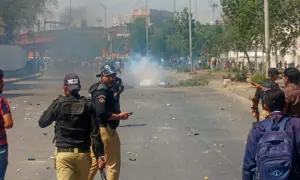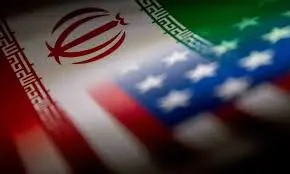A recent archaeology excavation at Gor Khatri has established the citys historical profile and now Peshawar is officially claimed by Archaeology Department to be the Oldest Living City in South Asia, boasting a recorded history that goes back as far as at least 539 BC.
“Still after claiming to be the oldest living city of South Asia, the exact archaeological profile of Peshawar is not discovered yet because the excavation at Gor Khatri was stopped before reaching the virgin soil due to shortage of funds,” informed Saleh Muhammad, Director Archaeology and Museum Department Khyber Pakhtunkhwa.
The provincial government, he added, has now included the project for resuming of excavation at Gor Khatri in the Annual Development Plan of new budget and work is going to start soon.
“Once the capital of Gandhara, Peshawar is so old that its origins are lost in antiquity,” remarked Dr. Ihsan Ali, former Director Archeology Museum Department and presently Vice Chancellor Abdul Wali Khan University Mardan.
The claim is firmly grounded upon two significant archaeological findings during excavation at Governors House in 1906 and at the ongoing archaeological dig at Gor Khatri, Dr. Ehsan said during his recent lecture at Wali Khan University.
Dr. Ihsan Ali said presently exact profile of Peshawar city does not exist and it is not clear that exactly how old Peshawar city is.
Quoting renowned Archaeologist, Syed Abdul Qudoos, Prof Ehsan said 'Peshawar is a true metropolis of orient and the legendry city has many secrets to share.'
The history of Peshawar is a story of different people and of many cultures, conquered by Greeks, ruled by Buddhists, destroyed by the Huns, rebuilt by the Brahmins, invaded by Ghaznavis, captured by the Mughals, over run by the Sikhs and annexed by the British in succession, he added.
“Resumption of excavation at Gor Khatri would enrich the archaeological profile of Peshawar because we are hoping of discovering more evidences of life beyond the period from 4 to 6 century BC”, observed Saleh Muhammad.
The excavation at Gor Khatri, which continued for four years and published in the British Journal Current World Archaeology with the title as The deepest and biggest excavation in the world revealed 20 layers that provide a complete profile of the city ranging from British down to the pre Indo-Greek era.
The excavation discovered that Peshawar was a province of Persian Alchamenian Empire in 4 to 6 century BC, he added.
He apprised that from Alchamenian, it came under the sway of many different influences and rulers namely Mauryans, Greeks, Scythians, Kushans, Sasanians, White Huns, Hindu Shahis, Ghaznavids, Slave Dynasty, Ghorids, Suri Afghans, Mughals, Durrani Afghans, Sikhs and the British before creation of Pakistan.
This claim can be verified through discovery of antiques during excavation which have been displayed at city's museum set up within the premises of Gor Khatri. The museum provides detailed information about archaeological and ethnological profile of Peshawar.
The museum, he continued, was set up with the objective of highlighting the archaeological importance of Peshawar city throughout the world by displaying the antiques recovered during excavation.
“Welcoming the development, Dr. Ali Jan, spokesman of Sarhad Tourism Corporation (STC), when contacted observed that enriching of Peshawars profile would enhance its archaeological importance and help STC to attract more tourists and history lovers to the city.
By discovering more evidence that Peshawar is much older than the claim of 2,600 years, the city can be included in the list of oldest living cities of Asia or may be of world like Jerusalem and Damascus, he hoped.
The present excavation has placed Peshawar proudly in the ranks of very few other cities in the world and digging more evidence will further boost its distinction, he added.
He also informed that while keeping in view the long chronicle of Peshawar with its living culture and remnants of the past, the provincial government, acting on a recommendation made by STC, has declared the year 2010 as a Celebrate Peshawar year.
In this connection, he continued, several events would be organized in November and December of current year with the objective of giving special recognition to the archaeological profile of Peshawar.
“Apart from government efforts, it is also the responsibility of the dwellers of Peshawar to preserve their cultural heritage, identity and legacy for future generations,” remarked Ali Jan. - APP Feature Service






























